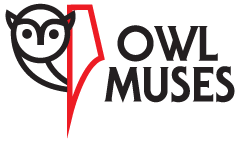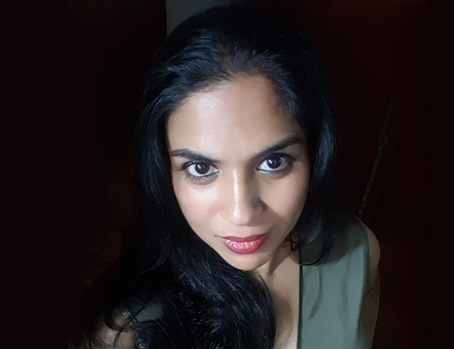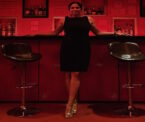The ‘Kaduwa’ and the Sri Lankan Post Colonial Hangover
For many who aren’t familiar with the Sri Lanka university system and its lingo, the ‘kaduwa’ would mean sword. But ‘kaduwa’ or ‘kadda’ as it’s commonly used, refers to English. Or the use of English in Sri Lanka. To be told ‘kadda dhanawa’ means you are using English almost like a weapon. And sadly, even today, English is still very much a weapon in Sri Lankan society.
As per the Sri Lankan constitution, English is identified as a ‘Link language’. One can assume that a link language has the task of bridging barriers and linking people from different communities and even nationalities. During the British colonial rule of Sri Lanka, the language of instruction was English and it saw people from many communities using English as their first language. Hence Sinhalese, Tamils, Muslims and Burghers all spoke English. However post 1956, post independence, and post the attempts to revive nationalism, ethnic superiority and a claim of a lost ‘native’ tongue, English was pushed away but somehow became the language of the upper class. Those of Colombo society, and the remaining few of the purge from this isle, claimed English as their own and it somehow became the double edged sword it is today.
Double edged because people use it to belittle those who are not fluent – the most recent example being the fiasco of Sajith Premadasa’s Tweets. And double edged because it is required to gain some level of international recognition should one wish to do so.
Personally, as an English graduate who considers herself a native speaker of Sri Lankan English, even I would use synonyms or a thesaurus to search for words when writing. It is perfectly normal and it is one means of expanding one’s vocabulary. This somehow became an issue for many Colomboites who felt that Sajith was trying to ‘impress people’ amongst other accusations, by using uncommon words from a thesaurus. Loud was the criticism heralded far and wide for a man doing what others would be doing too. But as Sajith is not considered a native speaker of English, his attempts were seen as sacrilege. And this is the problem plaguing many people today. Majority Sri Lankans do not speak English. Despite countless efforts to introduce English at school level through ‘Speak English Our Way’ and encouraging our own linguistic variant – Sri Lankan English – many have now either meandered off to think that Speak English Our Way means that we allow for mispronunciation and what is commonly termed ‘not-pot’ English, instead of understanding that it is a language of our own now – as proven linguistically. In the same way that Indian English, Singaporean English are variants of their own, so is Sri Lankan English. But sadly, instead of encouraging people to speak English and improve themselves, we have so many snobbish attitudes that laugh, mock, look down and belittle those who try.
As an English teacher with over 10 years of experience in teaching Lit, I remember so many students asking me how to improve their English. That they are afraid to speak because people laugh at them. I told them to speak with a loved one who won’t mock them and to build confidence with them first. I encouraged them to read and listen to English programmes on the radio or TV. But all this is pointless if the person concerned is met with mockery at their workplaces and in society.
If one ever listens to a European speaking English, it would be punctuated by added consonants and drawn out vowel sounds. Yet no one is laughing at them. Somehow the French accent speaking English is seen as ‘sexy’. So then why this step motherly treatment to our own when they attempt English?
It’s also the colonial hangover, beating its proverbial drum from the mountains. You will always be from a ‘developing world’, the ‘commonwealth’ not from the first world or the superpowers. Hence the masses of Sri Lanka fit into that ideal whereas those sitting in the seats of Colombo middle and upper classes, somehow see themselves as the learned few. Especially anyone who has had a modicum of overseas exposure (including marrying a Caucasian) would somehow be seen as above the ‘hoi polloi’. A bit of a ‘black skin white mask’ complex. And therefore, while using all odd accents as well (one cannot always fathom where they come from) they posit themselves as the guardians of English, wielding it like a sword and refusing to allow others to step into the hallowed space they claim to inhabit. You see this online since that is a space that many from different social spheres inhabit. But you also see this in the places and spaces that people inhabit. The Galle Literary Festival (GLF)was one such example of so called Colombo elites enjoying literature, so much so that Annasi and Kadala Gotu was set up as a literary festival to counter the elitism displayed by GLF.
Even in the school systems, the English Literature syllabus is often a purge of the canon – the English canon which has miseries like Sense and Sensibility and Cherry Orchard set for teenagers to delve into when there is so much English literature available in the world today. Most teens see English Lit as a difficult to comprehend and tedious subject because it is taught like that. I myself have had that experience. It is only university that opened my eyes to the joy of literature. And I was determined to make Lit enjoyable for my students as a result. But there are those who still think the best plays in the world were written only by Shakespeare ( I would beg to differ) and I think people need to wake the hell up from their colonial hangover.
Sri Lanka can progress if we get out of our frog in the well attitude. One such well is this English Kaduwa well. It needs to be emptied and the frogs need to hop out and into the world. We need to stop lording it over people using English as a weapon. Instead we need to open our minds and attitudes to welcome and accept diversity – yes even in using English. Because it does not belong to one group of people – it belongs to everyone.









